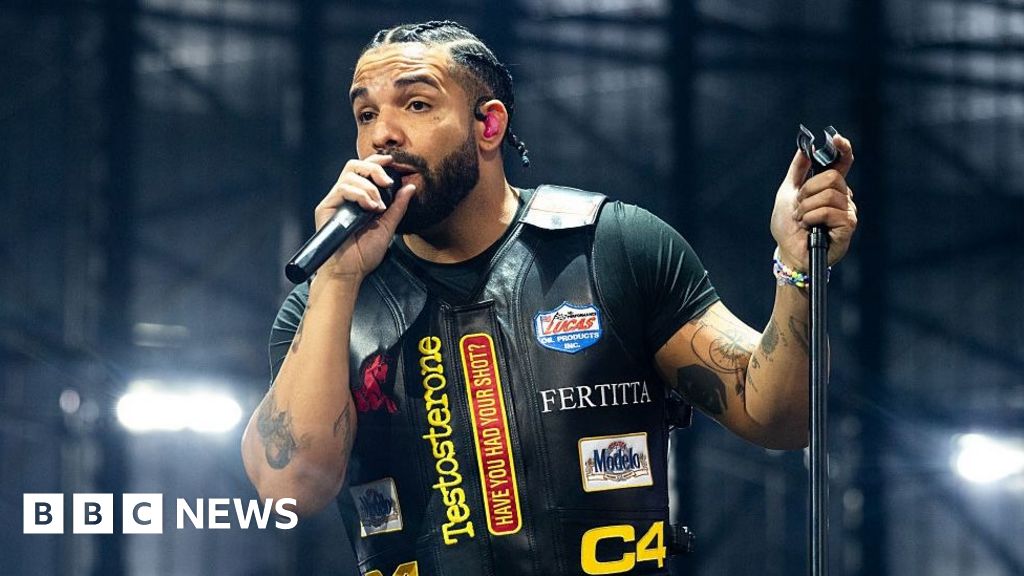Drake's still relevant - as his famous friends will tell you

```html Drake Reasserts Cultural Dominance with Star-Studded Wireless Festival Performances Drake has emphatically responded to recent challenges to his cultural relevance with a series of headline performances at London's Wireless Festival. Over three nights, playing to over 150,000 fans, the Toronto rapper showcased his extensive catalogue and brought out a host of special guests, effectively silencing doubts fueled by a high-profile feud with Kendrick Lamar.
A Weekend of Collaborations and Celebrations The festival, held in Finsbury Park, was structured around different eras of Drake's career. Friday focused on his R&B roots, Saturday highlighted UK rap and grime, and Sunday explored his forays into global genres. Each night featured a rotating cast of collaborators, creating a dynamic and unpredictable experience for the audience.
Lauryn Hill's surprise appearance on Friday, performing "Nice For What," was a particular highlight. Saturday's show was a celebration of UK rap and grime, featuring performances from Central Cee, Dave, Skepta, J Hus, and more. The sheer number of guest appearances underscored Drake's collaborative spirit and his deep connections within the music industry.
Addressing the Controversy: A Show of Strength The Wireless performances came after a period of intense scrutiny for Drake, largely stemming from accusations made by Kendrick Lamar during their recent public dispute. Lamar's Super Bowl halftime show performance, followed by diss tracks, led to considerable debate about Drake's position in the hip-hop landscape. Drake's legal team has reportedly taken action against Lamar's record label in response to the allegations. While social media narratives suggested a decline in Drake's popularity and support, the Wireless Festival proved otherwise. The enthusiastic reception from the London crowd and the willingness of prominent artists to share the stage with him painted a picture of enduring appeal and respect within the music community.
Expert Analysis: A Calculated Strategy "Drake's Wireless performances were a masterclass in reputation management," says Dr. Ella Jones, a cultural studies professor at the University of London specializing in hip-hop and celebrity culture. "By surrounding himself with respected artists, particularly from the UK scene, he effectively countered the narrative of isolation and cultural irrelevance. It was a strategic move to remind audiences of his influence and enduring popularity." Dr. Jones also points out the historical context: "Hip-hop feuds are nothing new, but the intensity and public nature of the Drake-Lamar situation put immense pressure on both artists. Drake's response, choosing to focus on collaboration and celebration rather than escalating the conflict, demonstrates a level of maturity and a desire to move beyond the controversy."
The UK Connection: A Mutual Appreciation Drake has long enjoyed a strong connection with the UK music scene. His collaborations with British artists and his adoption of UK slang have sometimes been met with criticism, with some accusing him of cultural appropriation. However, his Wireless performances demonstrated a genuine appreciation for UK talent and a willingness to share the spotlight. “There’s no place like home – London, England. You’ve shown me so much love over the years,” Drake told the crowd, acknowledging the strong bond he has formed with his UK fanbase.
Looking Ahead: Arena Shows and Continued Influence Drake's Wireless performances served as a powerful statement about his continued relevance and influence in the music industry. He is scheduled to return to the UK for arena shows with PARTYNEXTDOOR in Birmingham and Manchester, further solidifying his presence in the region.
The Evolution of Hip-Hop Feuds The Drake-Lamar feud highlights the evolving nature of hip-hop rivalries. While diss tracks and lyrical battles remain a key element, the impact of social media and the 24-hour news cycle amplify the drama and influence public perception. The response from artists, whether through direct confrontation or strategic collaboration, plays a crucial role in shaping the narrative and determining the long-term impact on their careers. According to music industry analyst, Mark Richards, “The digital age has changed the game. A feud can now play out in real-time across multiple platforms, impacting streaming numbers, social media engagement, and even ticket sales. Artists have to be incredibly savvy about how they manage their image and respond to challenges in this environment.” ```
Originally sourced from: BBC Entertainment
